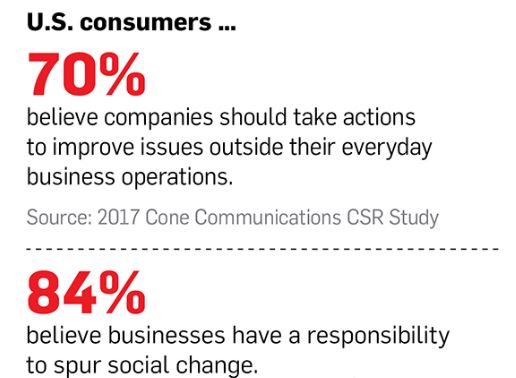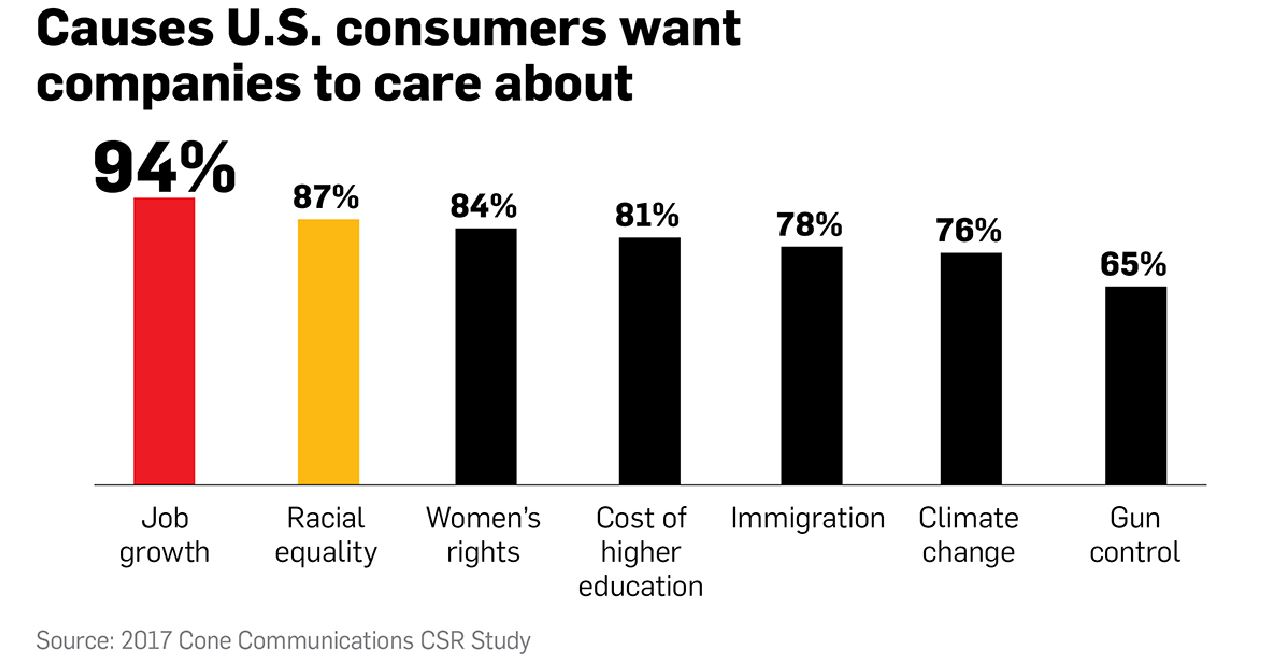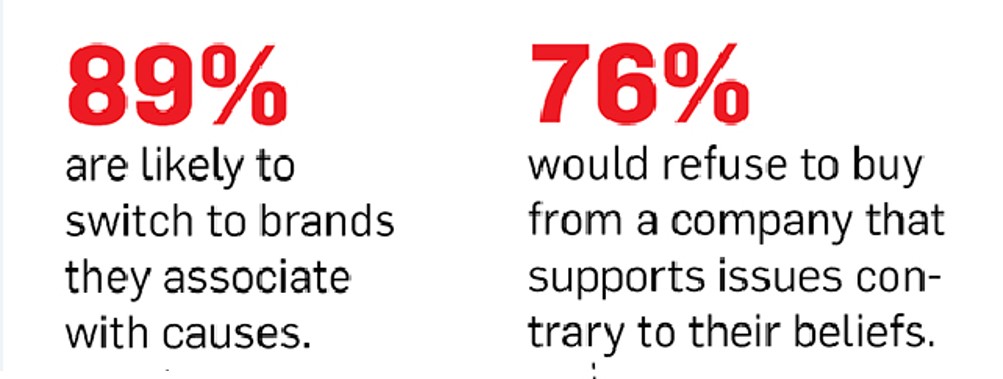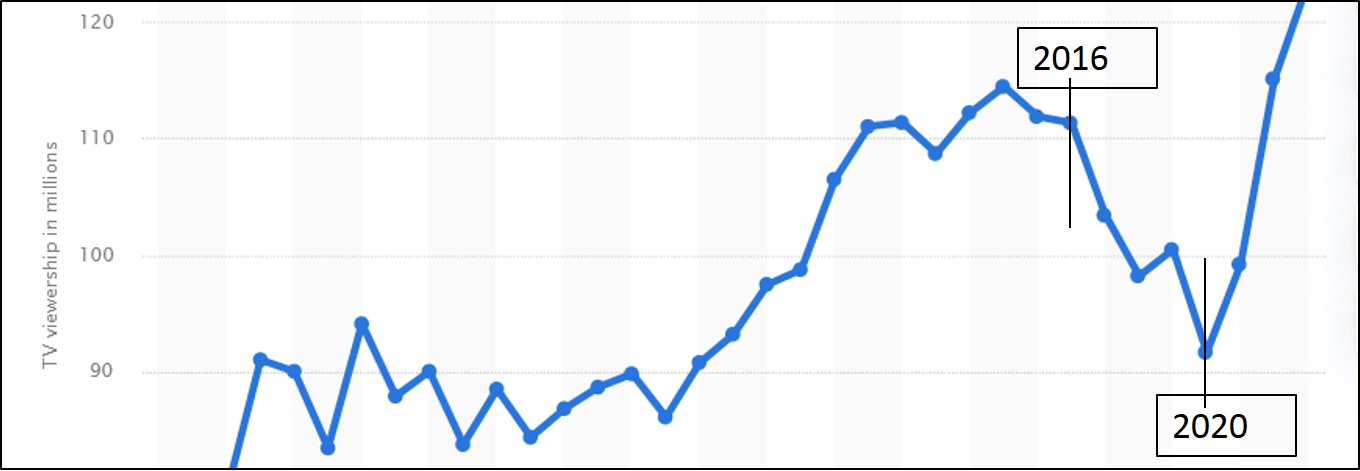
Vox: Companies don’t care about Woke.
Have you ever wondered why people you know to be smart and reasonable, can be so politically different from you? People get their information from different sources and this article is a perfect example. Nothing is necessarily wrong, it just misses the point and leaves out some important parts.
Post-2016 election, one Adweek column thundered, “Brands cannot expect to play Switzerland as the rest of the world picks a side.” Consumer culture suddenly became the vehicle for political expression, with Madison Avenue giving voice to countless causes.
Vox is not a serious media source, but Adweek is. The November, 2017 Adweek article contained a graphic that explains a lot and doesn’t explain anything. A couple of images from the graphic show how it is precise, but not accurate.

Adweek cites research that shows 70% of US consumers want companies to improve issues beyond the company and 84% want companies to advocate for social change. That may have been true in 2017, but it doesn’t say what social changes should be encouraged. Vox doesn’t explain it either, but apparently ad executives figured it was radical Progressive causes.
Another segment from the Adweek graphic tells us what causes consumers care about.

That is a plausible list of issues about which, US consumers cared about in 2017. Neither Adweek or Vox establish that consumers want companies to advocate for the Progressive position on these issues.
“Racial Equality” is still pertinent, but that could mean the colored-blind society of MLK Jr. Ad executives took it to mean the exact opposite of MLK’s dream, and pushed the diversity, equity and inclusion goals of the Progressives.
“Climate change” could mean a rational move toward nuclear power or it could mean the Progressive vision of a pre-industrial America.
Two segments from the Adweek graphic are positioned side-by-side. Again, with regard to US consumers:

I have no reason to doubt the research cited by Adweek. Marketing executives took this to mean that most consumers were Progressive activists. Why did the think that? Two reasons come to mind.
The first started under President Obama. As Matt Taibbi found in the Twitter Files, social media companies had a formal process where governmental agencies could submit moderation requests. Activity on social media was not an organic reflection of public opinion, but a manipulated propaganda tool.
The second is the rating of companies on their environmental, social and governance compliance with Progressive objectives by large investment firms like BlackRock and Vanguard.
During the Trump years, advertising evolved a bit like journalism: It went from ostensible objectivity and pitching its product across allegiances to satisfying partisan preferences and selling to niches. As society polarized and fragmented and everything got politicized — the NFL, safety pins, low-flow toilets — neutrality came across as craven delusion.
The Vox article would be more accurate if it said that Trump Derangement Syndrome took hold of advertisers as it did with journalism, but at least Vox admits they went Woke.
Why didn’t ad executives realize more quickly that they misunderstood the mood of US consumers?
When Kaepernick took a knee to protest the national anthem in September of 2017, the evidence became clear. In 2014, the Super Bowl had a record 114 million viewers. Viewership dropped off a bit by 2016, at 111 million. After Kaepernick made his anti-American statement to politicize the NFL, Super Bowl viewership dropped substantially. The NFL supported the anti-American sentiment and the protests continued, bottoming out in 2020 with 95 million viewers. The NFL got the message and Biden was elected, so the BLM agitators were withdrawn.

Progressives thought they had momentum. With corporate media, social media, academia and the entertainment industry so confident, marketing firms started hiring and promoting Progressive personnel. With wreckers on the inside, there was nothing to stop the push against traditional values.
The NFL was able to wake up from being Woke, but many companies didn’t see that they had made a mistake.
It was a surprise to AB InBev that Americans reject the perverse goals of the Progressive Left. When Dylan Mulvaney, a man who mocks women with an absurd depiction of femininity, appeared to be marketing Bud Light in April, 2023, the reaction was swift and decisive. Bud Light lost it’s position as the best selling beer in America and AB InBev lost a billion dollars in revenue.
Bud Light is not a high quality beer, but it was a high quality brand. InBev will recover, but Bud Light as a brand, will not. AB InBev will purge the Progressive Left from management and discourage any radical marketing of that type.
Under Trump, brands had appointed themselves vessels for progress, most especially on matters of cultural identity like race, sex, and immigration. In the years since, corporations have backpedaled to more of that “Switzerland” neutrality, reflecting a broader retreat from DEI ambitions across both law and norms.
Some companies are too far gone to pull back from the Progressive agenda. Disney has been purging experienced creative talent and replacing them with young, inexperienced and queer creators. Disney was once a solid gold brand. According to an Axios poll on corporate brand favorability of the 100 most visible brands in America, Disney is now ranked #77. That is four spots below Taco Bell, but six spots above Dollar General.
Bud Light hurt it’s brand with a major marketing mistake, but the quality of the product hasn’t changed. Disney altered the quality of it’s products, and that has damaged the brand. That results in long-term deterioration, rather than an abrupt collapse.
The reduction in movie quality resulted in Disney losing a billion dollars on four major movies last year. Last quarter, Disney made a profit of $47 million on it’s streaming services, but that is after a total loss of $11.4 billion. That good news caused Disney shares to tank, and lose $20 billion in market capitalization in one day. The Disney stock price is now about half of what it was three years ago.
The title of the article is, Your favorite brand no longer cares about being woke. Just like the article, it is misleading. Your favorite brand no longer wants you to think that it’s woke. Many companies are pulling back from DEI, and don’t want to be woke. For some, it’s too late.